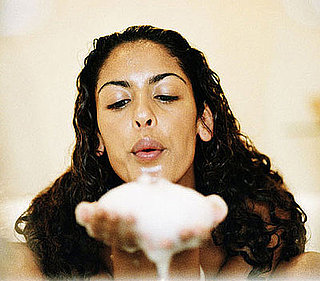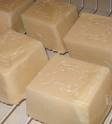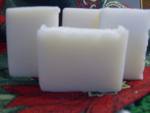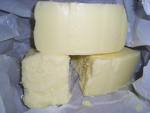Lather love: Why beef tallow makes the best lather (next to coconut)
Lather love. Sounds strange, isn’t it? But it is not that strange if you think through our habit of soaping. We measure a soap by its lather. Lather is so important that if the soap produces minimal, unsatisfactory lather, it is ranked lesser to its rich-in-lather fellow soaps. This is especially the case with laundry soaps or detergents. Before analyzing on which soap (tallow or oil) makes the best lather, let us take a look at what is lather and why a soap lathers.
What is lather all about? Soap, as we all know it, is a combination of a lot of ingredients, the basic of which include – a fatty-acid (in fat or oil), alkali and water. All soaps contain acids and when these acids react with caustic potash and water, it forms a fatty-acid salt called soap. The fusing of oil or fat with alkali products creates soap lather, which suspends dirt by creating greater surface tension with water. The lather traps the dirt and makes it easy for removal through rinsing.

Lathering varies from soap to soap, depending on the ingredients used. It cannot be said that all soaps that use fat lather well or all soaps that use oil lather the best. Since soap combines a lot of things, lather depends on three factors –
1.the ratio of lather-inducing ingredients present,
2.the type of soap (hard or soft) and
3.the nature of water in which the soap is used.
Two types of soap lather: Lathering can be seen in two different types among tallow and oil based soaps – one kind of soaps produce foamy, fluffy lather which may even appear to be a little excessive; another kind produce stable, sufficient lather to rinse and remove dirt from the skin or clothes. Tallow soaps are said to produce the latter kind of lather owing to their hard bar nature and reaction with lye.
Which soap lathers well – Oil or Fat soaps? For some soapers, soap means tallow and nothing else. For some, tallow is a beastly ingredient to be included in such a soft product like soap. Animal Rights activists would swear by vegetable or essential oils for soap making. Hence soap lather is closely associated to ingredients used. It is generally believed that tallow soaps make stable lather compared to other animal fats. On the other hand, oils like coconut oil or avocado or castor oil too make good lather, in fact, better lather compared to other animal fat based soaps. To produce both fluffy and stable lather, some soapers use both tallow and castor or coconut oil in their recipes. This balances the lather quality of the soap and offers rich, creamy, dirt-cleaning lather, irrespective of the water or other ingredients used.
Lather based on soap’s nature: Lather differs based on soap’s nature too. Hard soaps like tallow or lard soaps produce stable lather, while soft soaps produce foamy froth. Tallow, coconut oil, palm oil, lard etc will produce hard soap, while olive oil, almond oil and jojoba oil will produce soft soaps.
Water influence on lather: If your water is hard, it has a high level of calcium and magnesium. These minerals react with the oils present in the soap and have a negative impact on your soap’s lathering quality. Since soft water does not contain measurable amount of minerals, it produces good lather, compared to hard water.
On the whole, tallow soaps (next only to coconut oil soaps) provide stable lather that has the potential to raise the dirt and remove it.








